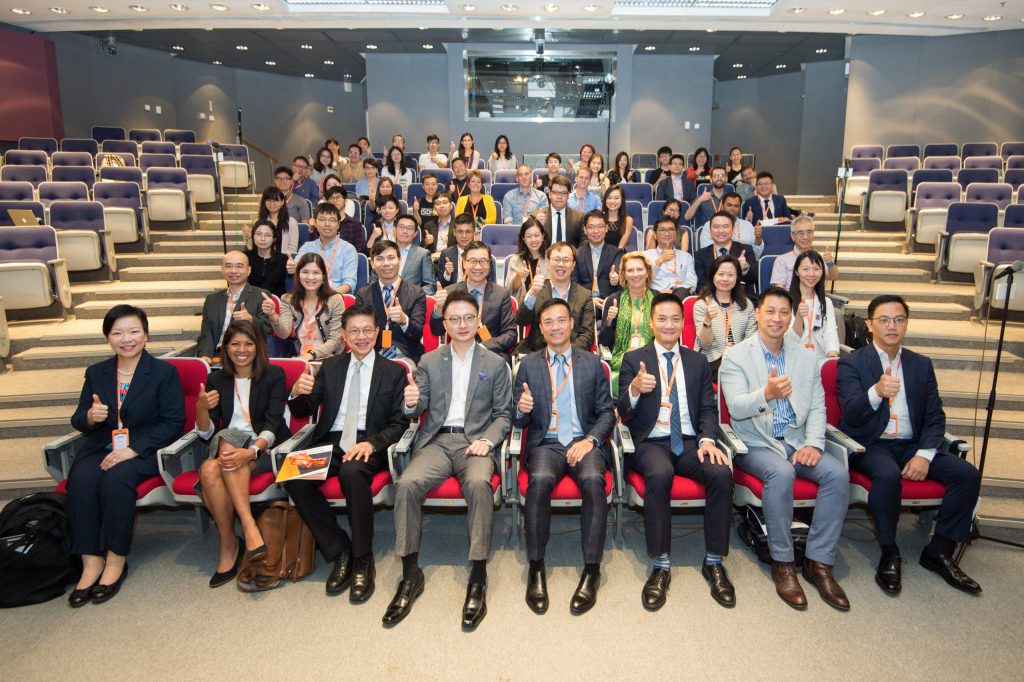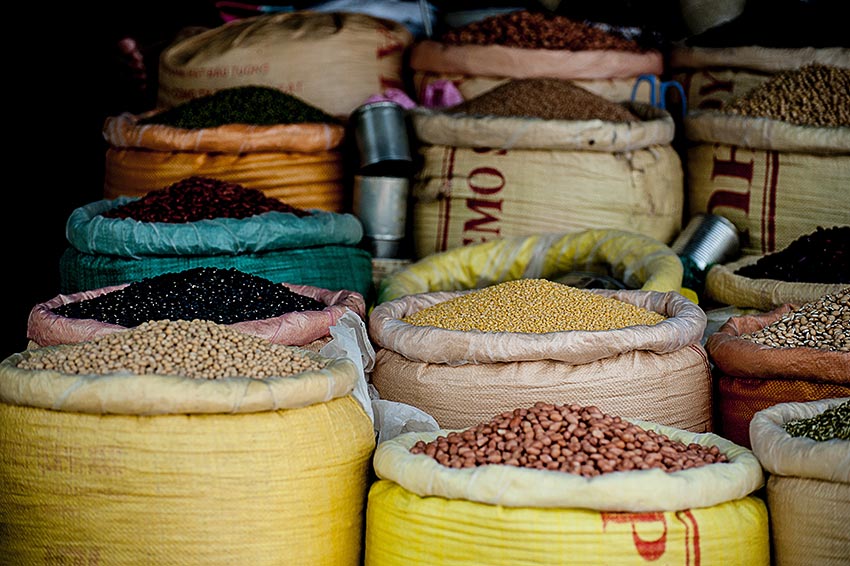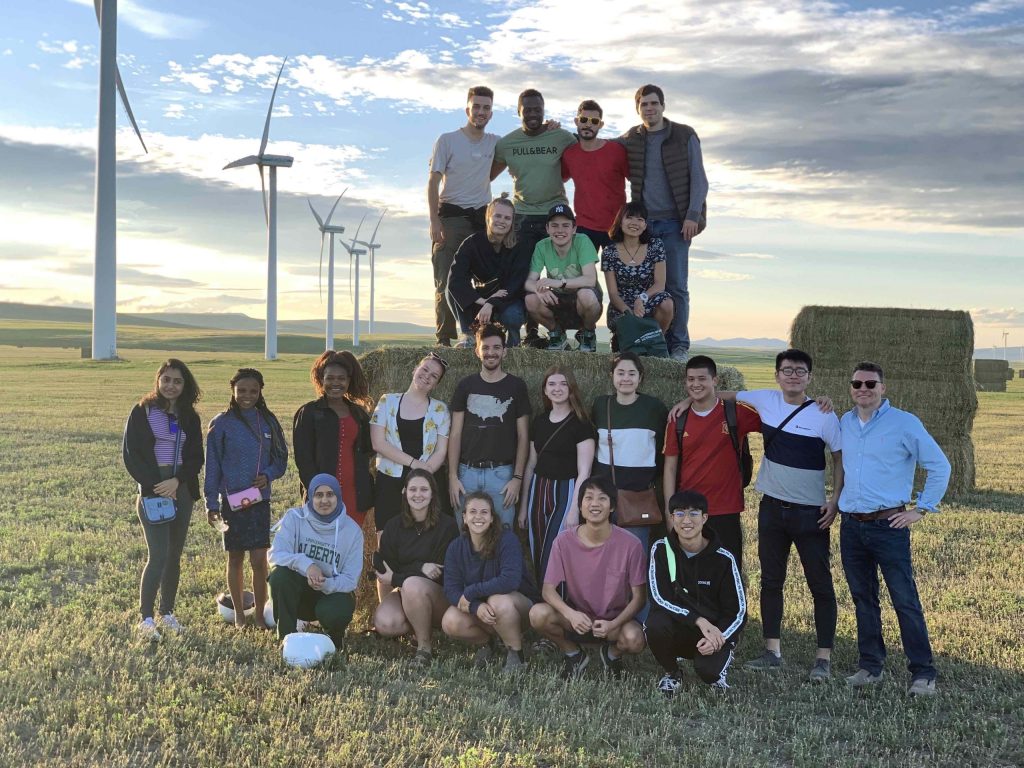WUN funding helps lay foundation for international cooperation on digital health

New technologies are capturing different information about health and treatments, opening up new pathways for more efficient and effective care. With its distinctive collaborative model, the WUN Digital Health Research Network has founded a new international society and is developing methodologies for studying and evaluating digital health innovations. Click through for the full story.
CROP-FS tackles gritty issues of global food security

The WUN-sponsored project Crop-FS (Climate-resilient open partnership for food security) is a consortium of 24 highly reputed international researchers engaged in conducting cutting-edge research to develop climate-resilient crops, microbial communities, and soil amendments for improving crop productivity under extreme environments.
PI Prof Om Parkash (UMass Amherst) explains that since its launch in 2016, the consortium has grown exponentially with more than 14 universities and institutions across five continents now involved. (Click through for full story)
Smart research, smart policy, smart care

By 2050, the world’s population of people over the age of 60 will double, which has significant implications for sustainable development. The World Health Organisation’s Decade on Healthy Ageing 2020–2030 calls for concerted, catalytic and collaborative action to improve the lives of older people, their families and the communities in which they live. PI Professor Ka Lin (Zhejiang University, China) says the WUN-funded research he’s been leading has yielded several significant findings in this area since the collaborative project kicked off in 2018 with the construction of a new analytical framework that brings innovation studies together with elderly care studies.
WUN’s legume research – a lynchpin to global food security

WUN’s Legume Network is building a global reputation for research excellence – paving the way for pulses to be embraced as crucial allies in the fight against climate change, hunger, obesity and other threats to world health.
In 2018, the network was awarded a sustainability grant from WUN to bolster its efforts to secure large-scale, transnational funding to establish a centre of excellence and associated nodes of research. “Large-scale funding will ensure we tackle major challenges in legume biology as a unified world-leading academic community of excellence, driving WUN bioscience forward in this key area,” says PI Associate Professor Michael Considine (UWA).
WUN’s Legumes Network comprises dozens of leading scientists across 12 institutions from five continents. Since its launch in 2015, the number of papers published relating to legumes and climate change has tripled from under 20 to more than 60 per annum – many connected directly to the network. (Click through to full story.)
New paper probes data diplomacy’s expanding role

The convergence of data and diplomacy and its far-reaching effects are the focus of a new academic paper by WUN-affiliated researchers published in Science & Diplomacy.
Data Diplomacy was co-authored by Andy Boyd (Bristol), Jane Gatewood, (Rochester), Stuart Thorson, (Syracuse) and Timothy Dye (Rochester). The publication reflects insights from the Worldwide Universities Network (WUN) symposium on data diplomacy held at the Academy of Medicine in New York in October 2015. It also names symposium delegates who lent their expertise in the areas of public health and translational research, governance and public policy, and data sharing and management to investigate the intersection of data and diplomatic engagement.
The paper shows data to be a two-edged sword: used to empower communities by granting them cultural capital and opening diplomatic possibilities, and as a tool to manage citizens’ behaviour. (Click through to full story.)
University of Bergen awarded large EU project on migration

University of Bergen researcher Hakan G. Sicakkan will lead a new EU-backed project on migration. The PROTECT project has been awarded EUR 3.3 mill from EU´s Horizon 2020 programme for the next 5 years. The project, which will closely follow the United Nations’ two new global compacts on migration and refugees, includes 11 partner institutions from Europe, Canada and South-Africa and will start 1 February 2020.
Fostering Energy Leadership: UAlberta provides global perspectives in 2019 WUN Summer School

The University of Alberta set the stage for student discovery in the areas of traditional energy development, future energy systems, environment, and land reclamation by hosting the Worldwide Universities Network Summer School this July.
Strengthening the science-policy nexus at the United Nations

Image: United Nations The University of Bergen visited the High-level Political Forum at the United Nations in July to strengthen the science-policy advice in the approaches to and implementation of the Sustainable Development Goals (SDG). The University of Bergen delgation consisted of Professor Edvard Hviding, Professor Tore Furevik, Professor Tor Halvorsen, Professor Kikki Kleven and […]
Launch of the 2019 WUN Research Development Fund

WUN is pleased to announce that the Research Development Fund (RDF) 2019 round is now open.
In its eleventh year, the RDF provides researchers in WUN universities with grants of up to £10,000 to foster research collaborations across the network. Grants are offered to support projects within the scope of the four WUN Global Challenges.
“RDF support is intended to help investigators launch collaborative projects that capitalize on distinctive research strengths within the network”, said Professor Peter Lennie, Executive Director of WUN. “The partnership enables us to assemble an unrivalled constellation of strengths that, through the RDF, can be powerfully brought to bear on problems of real consequence.”
Maastricht University leading alliance to create one of the very first “European Universities”

WUN member Maastricht University, which leads the Young Universities for the Future of Europe alliance, has recently been awarded a large grant by the European Commission to set up one of the very first models of European Universities. WUN is strengthened when our member universities extend their reach internationally, and we congratulate Maastricht University on this notable achievement.

